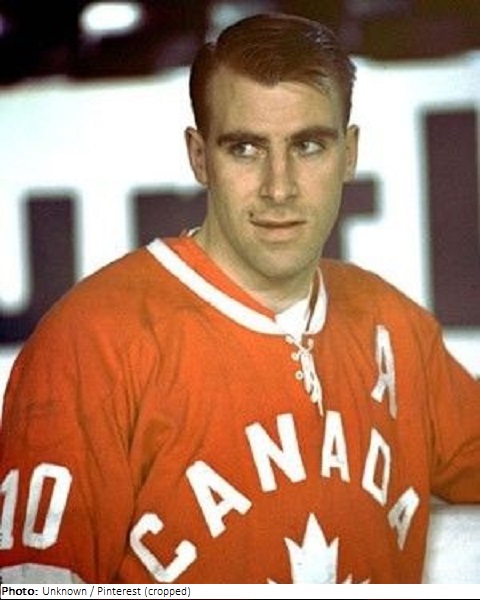Defenseman Marshall Johnston began a lifelong career in ice hockey by spending 1957 through 1959 as a member of the Prince Albert Mintos of the Saskatchewan Junior Hockey League. In 1959 he entered the University of Denver and played on their hockey team, the Pioneers, four his entire four-year stay there. Upon graduation, he was immediately recruited to the Canadian national ice hockey team, which had been formed in 1963, the same year that he left the University of Denver. He joined them for the 1964 Winter Olympics, playing in eight matches, but did not win a medal after a loss to the Soviet Union in the final and the application of a tiebreaking rule that left Canada in fourth place at the tournament. By World Championships rules, however, the team had earned a bronze medal, although they failed to achieve this outright at the 1965 World Champions. Johnston stayed with the team for the next two editions, however, and helped his country bring home bronze during those years. He also joined them for their journey to the 1968 Winter Olympics as team captain, where he played in seven games, scored two goals, and earned Olympic bronze. By that time, however, he was sought after by the National Hockey League and he spent the rest of the 1967-1968 season with the league’s Minnesota North Stars. Unable to maintain a regular presence on the professional team, he split each season between 1968 and 1971 with the North Stars and another team. In 1968 it was the Cleveland Barons of the American Hockey League, in 1969 it was the Iowa Stars of the Central Professional Hockey League, and in 1970 it was the Barons again. In the latter case he suited up for only one game in the NHL, preferring instead to play with the Barons, where his talent was rewarded in 1971 with the Eddie Shore Award, given annually to the league’s best defenseman.
Johnston was traded to the Montreal Canadiens in May of 1971, but only a few months later the team passed him on to the California Golden Seals, with whom he would skate out the rest of a playing career that ended in 1974. In his final year he acted as player/coach, and coached the Seals full time the following season. It was this profession that became his calling and he returned to the University of Denver in 1977 to spend four years coaching their ice hockey team. His next stop was the NHL, spending a year with the Colorado Rockies as assistant general manager and coach, and sticking with the team when they became the New Jersey Devils in 1982. During this time, he also coached the Canadian national team at the 1978, 1979, and 1982 World Championships, earning his country two more bronze medals. With the Devils he was coach until 1984, and then director of playing personnel until 1993. After a few years as CEO of CIPRO, a professional scouting network, he joined the Ottawa Senators in 1996 and served as their director of playing personnel until 1999, at which point he was promoted to general manager until leaving the team in 2002. Prior to joining the Carolina Hurricanes as director of professional scouting in 2005, he spent several years as director of player evaluation for the Chicago Blackhawks. After a lifetime of hockey, he finally earned his first Stanley Cup title in 2006 with the Hurricanes. In 1998 he was made a member of the International Ice Hockey Hall of Fame.

 Canada
Canada CAN
CAN CAN
CAN